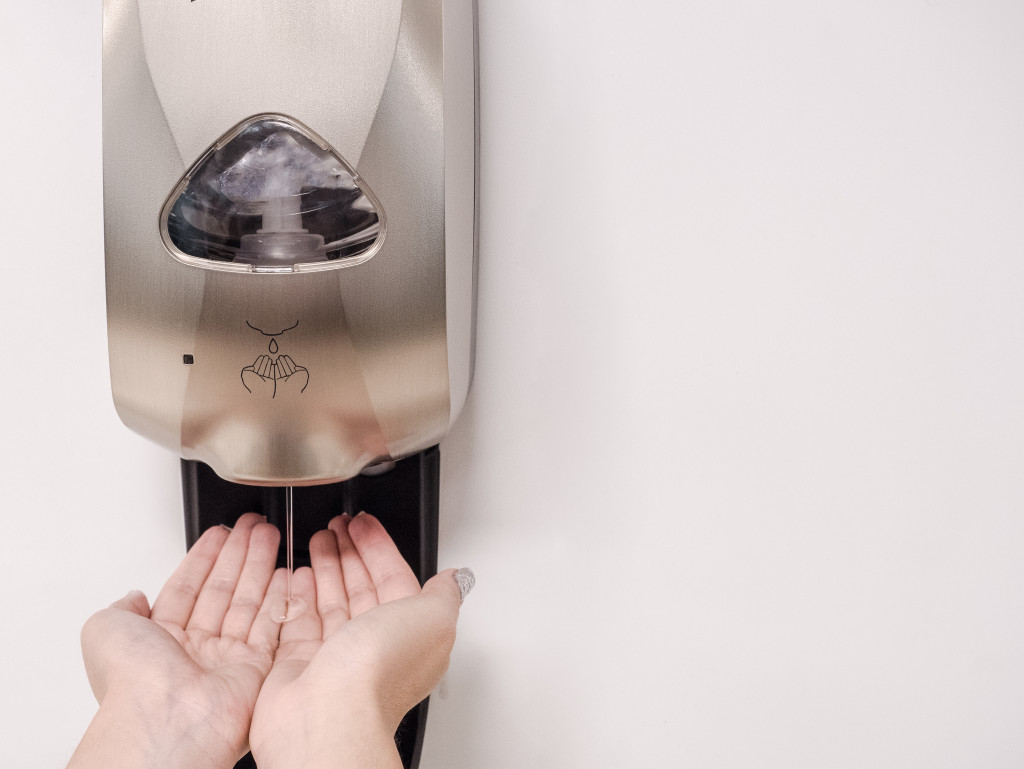The novel coronavirus has turned hospitals into battlefields. Setting foot in the immaculate white halls of hospitals means putting your life in great danger. If you’re not careful, you might not come out alive. That is the tragic reality of working as a medical frontliner in the age of pandemic.
Health care workers are the most vulnerable in contracting the deadly virus. According to the International Council of Nurses (ICN), more than 90,000 medical professionals in the United States have been infected with COVID-19. Because of the imminent threat posed by the coronavirus on medical workers’ well-being, healthcare staffing has become more challenging for hospitals around the globe.
However, with proper protective equipment and workplace practices, the risk of infection can be significantly reduced. That is why healthcare workers need to adhere to a rigorous after-work decontamination routine. That is to minimize the likelihood of transmission effectively. Here are four practical ways for medical frontliners to disinfect after their long shift at the hospital:
Engage in the Painstaking Process of Handwashing
Handwashing is the most effective measure to reduce the risk of infection. When washing your hands, it’s imperative to use soap as it ultimately kills the virus.
According to the Center for Disease Control and Prevention (CDC), soap destroys the lipid bilayer membrane of the coronavirus, which is the structure that holds the virus together. When this layer of fat is dissolved, the virus will disintegrate. That’s why aggressive handwashing is your first line of defense against the disease.
You have to rinse your hands regularly, especially after touching equipment or facilities in the hospital. If you come into contact with steel surfaces, you have to wash your hands immediately to remove the virus that may have attached itself to your skin.
You have to do this for at least 20 to 30 seconds to ensure your hands are thoroughly cleaned. Afterward, dry your hands with a single-use tissue. Since germs are more likely to increase on wet skin, you always have to keep your hands dry when you’re in the hospital. After this step, you have to apply at least 70% alcohol or sanitizer on your hands for added protection.
Leave the Hospital Premises In a New Set of Scrubs
Since you’re exposing yourself to a high-risk environment, you have to double your efforts as a medical frontliner. It would be best to bring extra clothes that you can change into after your hospital shift. Through this method, you can reduce the chances of contaminating your car or home.
When changing into your after-work clothes, make sure to place your used scrubs into a plastic bag before storing it into your duffle bag. Upon reaching your home, throw it into your washing machine before hitting the shower. When washing your scrubs, make sure not to include your other garments.
Luckily, some hospitals offer laundry services for its medical staff. That would be a better alternative instead of bringing your work clothes at home. While experts claim that there is little to no risk of infection through fabrics, it is still advisable that health workers practice this safety measure upon leaving the hospital premises.
Sprint to the Shower Upon Entering the House

The first thing you should do upon entering your home is to run straight to the shower. Refrain from touching furniture pieces or interacting with your loved ones without taking a bath. That is to ensure that you are rid of any potential virus that you might have picked up during your shift at work.
When taking a shower, make sure to thoroughly cleanse your body with soap, especially parts most likely exposed to droplets. Take in mind that viruses usually thrive in moist areas, so be sure to hit the right spots when you’re taking a bath.
Showering right after work is an effective method of reducing the risk of transmission since shampoos and soaps have surfactant properties; this means that with the aid of water, it can dissolve lipid membranes, specifically that of the virus. If you want to be extra prudent, you can use a different set of hygiene products from your family members.
Perform Thorough Disinfecting of Your Valuables
According to the World Health Organization (WHO), the coronavirus can be transmitted through respiratory droplets or contact routes. That means that you might get infected just by touching surfaces or objects that might have been exposed to a virus carrier. When droplets fall on surfaces, it becomes a mode of indirect transmission. If you happen to come into contact with these contaminated areas then happen to touch your mucous membranes such as your eyes, nose, and mouth, you can get exposed to the disease.
That’s why it’s important to regularly disinfect your work station, including your office desk, keyboard, pen, and medical equipment. You should also decontaminate the items you usually bring at work like your cellphone, car keys, and wallet. If you want to reduce the risk of transmission significantly, you can minimize the items that you bring to the hospital.
For our medical workers, going to work is like setting foot in a war zone. Every day, they put their lives on the line and go beyond their call of duty. May this information help healthcare workers in protecting themselves from the risk of the coronavirus, so they may effectively perform their duties of serving their countrymen in these trying times.

